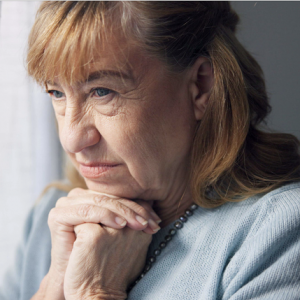One And Done: The Rise Of Seniors Aging Solo

One And Done: The Rise Of Seniors Aging Solo
September 25, 2024
There’s never been a moment in history when people have lived longer, and there’s likely never been a moment in history when so many people, especially older people, have lived alone. According to a recent post by journalist Judith Graham writing for Kaiser Family Foundation Health News, more than 16 million Americans are currently living alone as they grow older. What is the reason for this? Everything from longer lives to an increase in “gray” divorce, to fewer children, to geographic distances between family members. While not all “solo” agers are literally without any family members, the definition tends to include “older adults without the support of adult children or close family members, either by choice or by circumstance.” In essence, then, a solo ager doesn’t have the typical family support system or circle of loved ones that can provide informal caregiving or step in when urgent situations develop. And that’s a problem, as Graham noted because, “Studies find that seniors on their own are at higher risk of becoming isolated, depressed, and inactive, having accidents, and neglecting to care for themselves. As a result, they tend to be hospitalized more often and suffer earlier-than-expected deaths.” A recent report from the Mather Institute detailed the experiences of solo agers, finding that they were less satisfied with their life and mental health, were concerned about maintaining their autonomy and dealing with such issues as loss of independence and mobility, yet had not necessarily been proactive in putting into place plans to deal with future caregiving needs or support.
Likely, many who find themselves alone and aging did not plan on this later-in-life arrangement. Women, more than men, tend to find themselves in such circumstances, either widowed, divorced, or perhaps never married. Whether by choice or by circumstance, someone who finds herself in this situation has no choice but to think carefully about not only the usual concerns confronting older adults (housing, finances, medical care, long term care, etc.) but also think strategically about how to anticipate and address situations that simply cannot be handled by oneself, such as getting emergency help in the middle of the night, having someone make decisions on your behalf should you become unable and carrying out your end of life wishes consistent with your goals and values. Every older adult faces these issues but when you’re alone and on your own, the challenges are that much steeper. A recent New York Times article underscored this need to plan ahead as a solo ager, including putting into place such plans as advance directives, a will or estate plan, details on how to distribute your possessions, a health care proxy, and a durable power of attorney. And regarding a person to select as your surrogate decision maker? Without the availability of a spouse, partner, or adult child, some may consider appointing a sibling or perhaps a close friend. However, experts suggest you steer clear of anyone who may also be confronting issues similar to yours and instead look for someone younger than you who may be a more reliable and available substitute.
In addition to these quandaries, those who age alone confront challenges that may put them at financial risk. Without someone sharing your bills and pooling their finances with yours, older solo adults may also need to carefully plan their fiscal futures in advance, including putting aside extra savings, reducing the costs of home maintenance, and purchasing long term care insurance to help meet future health care and companion costs. These factors may mean that those who are solo may need to work later into their senior years or forgo plans to age in place if the finances are not available to adequately meet their needs. And without someone to naturally step in, a solo ager may need to pay someone to help manage their money and pay their bills: that is, someone to be a “daily money manager” for them.
In essence, every person who is now solo or anticipates being so in the future needs to ask themselves some hard questions with no easy answers. Kiplinger recently created a list of 7 essential questions to consider, including who will be your 2:00 AM emergency contact person, what resources exist in your community for solo agers, and what other resources are out there to help you manage your situation. Regarding resources, there are several websites and experts accessible online to help you sort through some of these issues. So point your mouse and click here and here for more online help and support.
Finally, aging alone does not have to be doom and gloom. There are many examples where, by choice, older adults have crafted a rich and meaningful life on their own, and perhaps created a strong social network within their community to help fill in the gaps when the need arises. Many solo agers are very happy not having to contort their lives to meet someone else’s desires or needs and even find the solo time important for determining who they really are and what they want from the rest of their lives. And given the rise in the number of solo agers, those who are alone are no longer strange or an anomaly. To read more about what can be the upside of this type of life, read here.







